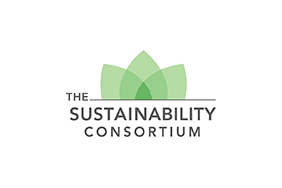TSC Reports THESIS Index Users Represent Almost $1 Trillion in Annual Retail Sales
According to TSC’s 2020 Impact Report, 45 of the top 100 CPG companies performed THESIS assessments in 2019.
Published 04-30-20
Submitted by The Sustainability Consortium
 TSC Impact Report 2020
TSC Impact Report 2020The Sustainability Consortium (TSC) reported today that of the top 100 CPG companies, 45 of these manufacturers performed THESIS assessments in 2019. These companies, plus the over 1,500 suppliers who used THESIS, represent almost $1 trillion in annual sales. The Sustainability Insight System (THESIS), powered by SupplyShift, is the independent, science-based, performance management solution that allows brands and manufacturers to understand the sustainability story of their products, to quickly identify ways to improve, and to communicate that story to retailers, customers, investors and consumers.
The launch of THESIS in 2019 saw the roll-out of a new measurement platform used by retailers and product manufacturers to optimize supply chain transparency. Product manufacturers were able to use new content and functionality to gain insight into their performance and drive improvements of the products they produce.
Scores among product manufacturers remained flat from 2018 to 2019 in the first year of the new THESIS index. Scores in the 2019 THESIS Index have improved 23% since baseline year of TSC’s original sustainability index in 2016. Systems and processes put into place by manufacturers over the last several years have led to an improvement in scores, but the unchanging scores from 2018 to 2019 indicate that systemic challenges remain to improve supply chain transparency.
In their 2020 Impact Report, Defining Leadership in Sustainable Supply Chains, TSC details that companies are still struggling with challenges that can include measuring and reporting greenhouse gas emissions, changing to more sustainably sourced or recycled material in product and packaging design, and addressing social responsibility issues like labor rights.
“Gaining transparency into your own operations and your supply chains is an important first step,” says Dr. Kevin Dooley, Chief Scientist of TSC. “Now companies can use THESIS to identify gaps and take steps to change their product, packaging, or processes to become more sustainable. And to get recognition for doing so from their customers.”
Many product categories are featured in TSC’s Impact Report:
Hand tools have doubled THESIS scores since 2016 and performed well on energy efficiency, product design and responsible battery management
Footwear has improved 75% since 2016 and performed well on labor rights, worker health and safety, and protections for homeworkers
In individual assessments, THESIS high scores stand out for:
Activewear for Children, Men and Women scores high on labor rights, worker health and safety, greenhouse gas emissions, water use and wastewater management.
Dishwashing products performed will with high scores in chemical selection, fragrance safety, ingredient disclosure and packaging design.
Overall, plant-based foods scored well because of shorter supply chains and good relationships between buyer and supply chain
Livestock categories had high scores related to similar data already collected for regulatory compliance.
TSC Chief Executive, Euan Murray, states, “This is the year TSC will define sustainability leadership in each category as a part of a multi-year strategy to help brands and manufacturers understand the sustainability story of their products and tell that story to retailers, investors, consumers and NGOs.”
TSC announced in early 2020 that their five year strategy will see THESIS as a tool for retailers and product manufacturers to manage their businesses and communicate with stakeholders, and will see TSC reduce the effort and increase benefits for THESIS users and develop new audiences for results. In addition to THESIS changes, TSC committed to expanding their current Innovation Program to focus on products that translate science and create transparency as well as launch their Leadership Institute, a program to tackle issues collectively and develop the sustainability leaders of tomorrow.
“Walmart encourages suppliers to participate in The Sustainability Consortium’s THESIS Index as part of our efforts to promote sustainability and transparency across our supply chain,” says Jane Ewing, Senior Vice President, Sustainability, Walmart.
TSC is a global organization propelling the consumer goods industry forward to create more sustainability products through science-based assessments and solutions. Their full impact report is available here.
###
The Sustainability Consortium (TSC) is a global non-profit organization transforming the consumer goods industry to deliver more sustainable consumer products. We work to enable a world where people can lead fulfilled lives in a way that decouples their impacts on people and the planet. Our members and partners include manufacturers, retailers, suppliers, service providers, NGOs, civil society organizations, governmental agencies and academics. TSC convenes our diverse stakeholders to work collaboratively to build science-based decision tools and solutions that address sustainability issues that are materially important throughout a product’s supply chain and lifecycle. TSC also offers a portfolio of services to help drive effective improvement and implementation. Formed in 2009, TSC is jointly administered by Arizona State University and the University of Arkansas and has a European office at Wageningen University and Research in the Netherlands. For more information visit www.sustainabilityconsortium.org.

The Sustainability Consortium
The Sustainability Consortium
The Sustainability Consortium® (TSC®) is a global nonprofit organization working at the intersection of science and business to transform the consumer goods industry to deliver more sustainable products. TSC creates credible, scalable tools, strategies and services that are based in science, informed by stakeholders and focused on impact across the entire lifecycle of consumer products, including environmental, social and economic imperatives. The Sustainability Consortium is comprised of more than 100 members, including manufacturers, retailers, NGOs, civil society and corporations that work collaboratively on innovation for a new generation of products and supply networks. The Sustainability Consortium is jointly administered by Arizona State University and the University of Arkansas, with additional operations at Wageningen UR in the Netherlands and Nanjing University in China.
More from The Sustainability Consortium

